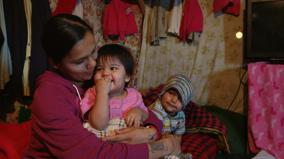New release
Coming
None
Un pays sans bon sens!
1970
1 h 57 min
Leaving soon
Essai cinématographique sur la notion d'appartenance à un pays. Se trouve-t-elle enracinée dans le cœur des hommes et des femmes, comme le croient certains? Les Québécois ont-ils assez de maturité pour se donner l'autonomie et un territoire? Qu'est-ce que le pays? Voilà quelques questions soulevées dans le film à une époque où ceux qu'on appelle Canadiens français se questionnent sur leur identité. Le documentaire aborde également la question de l'appartenance à un pays pour les Autochtones au Québec et les Bretons en France.

Details
Essai cinématographique sur la notion d'appartenance à un pays. Se trouve-t-elle enracinée dans le cœur des hommes et des femmes, comme le croient certains? Les Québécois ont-ils assez de maturité pour se donner l'autonomie et un territoire? Qu'est-ce que le pays? Voilà quelques questions soulevées dans le film à une époque où ceux qu'on appelle Canadiens français se questionnent sur leur identité. Le documentaire aborde également la question de l'appartenance à un pays pour les Autochtones au Québec et les Bretons en France.
-
directorPierre Perrault
-
producerGuy L. CotéPaul LaroseTom Daly
-
imagesBernard GosselinMichel Brault
-
soundSerge Beauchemin
-
editingYves Leduc
-
sound mixerRoger Lamoureux
-
castLéopold TremblayMarie Tremblay
-
participationPierre BourgaultMaurice ChaillotMichel DelahayeDidier DufourLouis HarveyRené LévesqueVictor-Basile RaphaëlXavier RaphaëlLaurent Tremblay
Education
Ages 15 to 16
School subjects
















